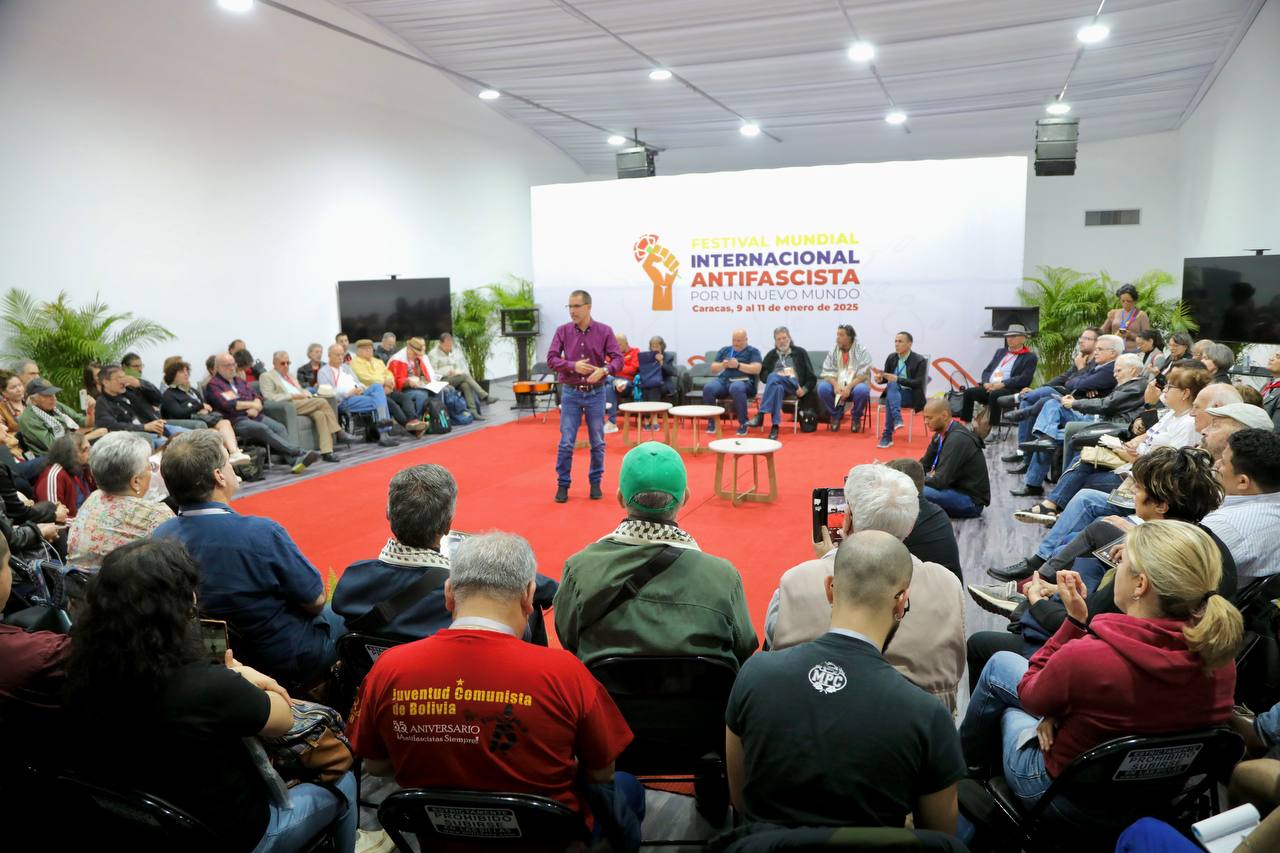Caracas, January 9, 2025. – During the working group session Intellectuals, Artists, and Social Movements in Defense of Humanity, held in the context of the World Anti-Fascist Festival in Venezuela, Jorge Arreaza, Executive Secretary of the Bolivarian Alliance for the Peoples of Our America – Peoples’ Trade Treaty (ALBA-TCP), urged global thinkers to create analytical methods and action mechanisms to combat fascism.
“Fascism is currently in an offensive phase. The fascist threat is clear, just look at what Donald Trump is hinting at: Panama, Greenland, Canada—seeking control over these nations. We need your intellectual contributions to establish critical analytical methods and develop pathways from these analyses and insights,” Arreaza asserted.
According to the Executive Secretary, the governments and peoples of the Alliance require new policies and new horizons to generate concrete actions for and by the people. “It is an almost desperate need,” he added.
Argentinian Paula Giménez from the portal Noticias de América Latina y el Caribe (Nodal) emphasized that intellectuals must respond to humanity’s needs. Similarly, the delegate from Peru highlighted that Venezuela’s revolution serves as an example for the region and holds significant global implications, while also warning that all peoples must unite “against this rampant violence.”
Emilio Silva from the Palestinian Solidarity Movement detailed that the primary task is to ensure that society can control the media, which is currently in the hands of the far-right. “The people must take ownership of communication,” he stated.
Cuban delegate Olga Fernández noted that social concepts and relationships are not static; thus, the formulas for analyzing society also evolve. She called for an analysis of contemporary fascism to effectively confront it.
The representative from India, representing the Tricontinental Institute, emphasized that Venezuela serves as an inspiration for resistance and proposed continuing the push for a multipolar world, as exemplified by Cuba and Venezuela.
Joselina Guevara, a delegate from Venezuela, stressed that the people must accurately understand what fascism is, its characteristics, and recognize its presence.
Similarly, Cuban writer Abel Prieto underscored the importance of compiling a list detailing “the cultural battle” and promoting debate on the dangers of fascism.
The working group of intellectuals and social movements, one of seven sessions held on Thursday at the festival, included delegates from Burkina Faso, Portugal, Brazil, Italy, Suriname, among other countries.
To conclude the session, Jorge Arreaza toured the various working groups and, during one of them, highlighted that the World Anti-Fascist Festival and other such meetings “now necessitate moving to an effective offensive.”
He noted that the intellectuals’ session discussed “the need to intervene in the educational content of our nations through popular education to see how we can ensure that our children—exposed to this (fascism) and worse—can truly reclaim their analytical and critical capacity.”
